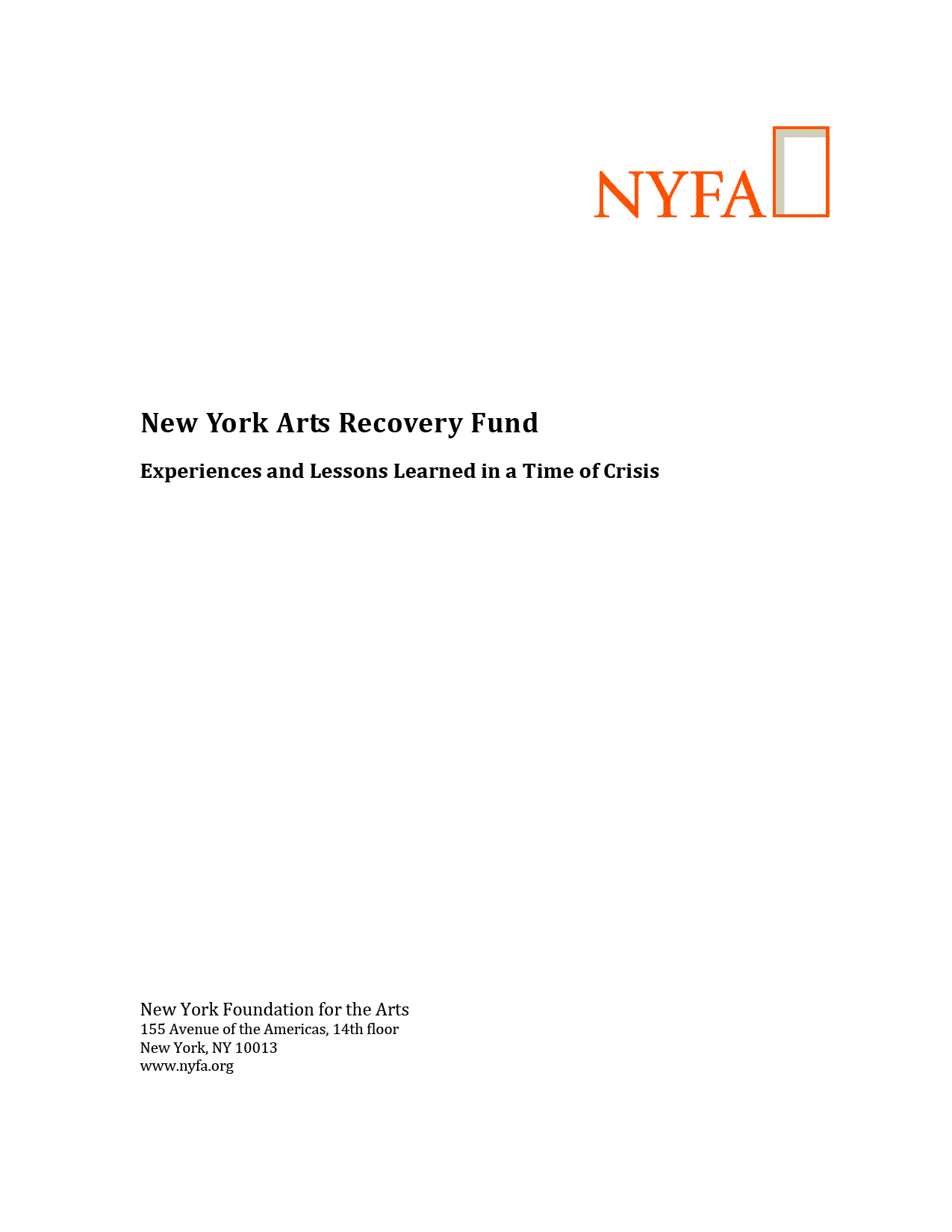Emergency Readiness, Response, and Recovery
While artists and arts organizations often play an active role in the healing process after disasters, the frequency of 21st century emergencies has also demonstrated that the arts and culture sector itself is highly vulnerable. Time and time again, creative careers and creative economies have suffered great loss and devastation, which has often included severe damage of unique cultural artifacts and venues. Cultural workers and arts organizations are generally underprepared for emergencies, and underserved when disasters strike.
National Coalition for Arts’ Preparedness and Emergency Response
The Coalition is a cross-disciplinary, voluntary task force involving over 20 arts organizations (artist/art-focused organizations, arts agencies and arts funders) and individual artists, co-chaired by CERF+ (Craft Emergency Relief Fund + Artists’ Emergency Resources) and South Arts. Coalition participants are committed to a combined strategy of resource development, educational empowerment, and public policy advocacy designed to ensure that there is an organized, nationwide safety net for artists and the arts organizations that serve them before, during and after disasters. Grantmakers in the Arts (GIA) members active with the Coalition have been meeting at GIA’s annual conference to guide and educate foundations, arts agencies, art service organizations and corporate grantmakers interested in becoming more emergency ready and effective in their emergency relief efforts and grantmaking. Click here for the executive summary of the Coalition’s 2014-2020 plan.
Recommended Resources & Publications
If you are currently working in an area affected by an emergency, the Coalition’s Essential Guidelines for Arts Responders is your first step.
This original work of theater, commissioned by Grantmakers in the Arts for the 58th Council on Foundations Conference, was presented at conference plenary sessions, Monday, April 30 and Tuesday, May 1, 2007. Directed by KJ Sanchez and written by KJ Sanchez, Emily Ackerman, Aysan Çelik, Darrick Clayton, Michael Place, and Amy Kim Waschke.
Read More...— Cornelia Carey, CERF+
Foundations have many useful assetspurchasing power, influence and leadership, knowledge of communities, and development know-how—all of which can be used creatively to aid a more equitable reconstruction of New Orleans and the Gulf Coast communities wrecked by Katrina and its natural and political aftermath.
The challenges to foundations are three-fold:
Read More...Report on the efforts following the 500 year floods that occurred in the Red River and Minnesota River Valleys in Minnesota and North Dakota in 1997. It serves as a report on the progress made and can also serve as a blueprint for other communities.
Download:
![]() When the Hot Dishes Stop Coming (191Kb)
When the Hot Dishes Stop Coming (191Kb)
I have visited groups of GIA members and nonmembers in every region of the country this year, from Boston to Los Angeles and Atlanta to Seattle. It has been an interesting first year as executive director of GIA, to say the very least. What I have observed is that grantmakers have not taken a “recess” during this challenging time. In many ways, for private and community foundations especially, there could have been a pulling away from grantees, a kind of “we can’t help you” attitude.
Read More...— P. Kingfisher
The current economic climate has forced many nonprofit arts organizations to confront underlying issues. Tensions mount, dollars are scarce, and unresolved weaknesses or fissures often grow. We have seen heartening examples of artists, donors, audiences, and funders rallying to support the art and organizations that they love. In some cases, streamlined, more focused organizations are forging ahead with renewed determination. But in other cases, the economic downturn may herald the time to close the doors.
Read More...— Foundation President
On May 12th, more than 60 artists and creative organizers engaged in civic participation, community development, education, social justice activism, and philanthropy came together for a White House briefing on Art, Community, Social Justice, National Recovery.
Read More...
